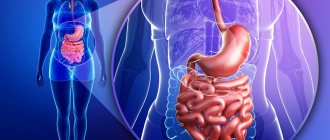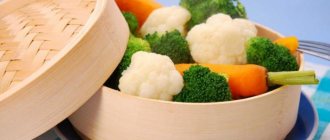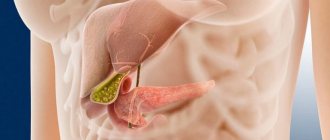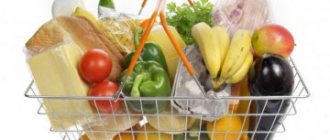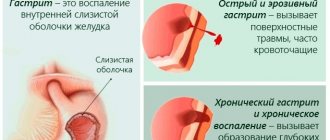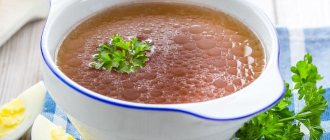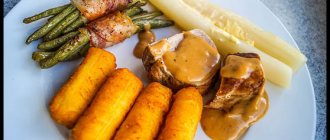Stomach ulcers in most cases are the result of poor diet and unwillingness to give up unhealthy habits, even when the symptoms of the disease have become obvious. To prevent even more serious and dangerous complications, you should strictly adhere to your doctor’s recommendations and not deviate from the prescribed diet. Interesting recipes for dishes for stomach and duodenal ulcers will help make your diet less monotonous and dull.
High-quality, fresh products from the list of allowed foods, a gentle cooking method, and proper diet are the key to good health during ulcers.
The benefits and harms of seeds
Sunflower seeds have a beneficial effect on the body if consumed in small quantities and with a healthy stomach. They contain a lot of substances and microelements beneficial to the body:
- vitamins D, A, E;
- amino acids involved in the digestion process;
- linoleic and oleic acids;
- carbohydrates;
- tannins;
- magnesium, potassium, phosphorus;
- iodine, iron, sodium, chromium, copper, silicon.
But, despite all the richness of their composition, they cause great harm to a person with stomach and duodenal ulcers, especially in their raw form. Eating them helps:
- strengthening the secretory function of gastric juice;
- the appearance of acute pain outbreaks;
- the occurrence of heartburn, belching;
- bloating;
- progression of the disease into an acute form;
- severe inflammatory process on the gastrointestinal mucosa.
So is it possible to eat sunflower seeds if you have a stomach ulcer? The answer is clear - no! The exception is pumpkin and flaxseeds, but only in cooked form and after consultation with a doctor.
Do you need a diet?
Undoubtedly. The first thing to change is the diet for duodenal ulcers; it should be gentle, which means excluding solid, hot and secretion-stimulating foods. The latter includes alcohol, fatty, fried, spicy foods, strong tea, coffee and more. Will interfere with curing ulcers and smoking. Today, due to a more detailed study of peptic ulcer disease, the advice of nutritionists is not as strict as before.
However, the role of rational nutrition in prevention and therapy remains important. According to reviews of specialists (and the patients themselves), neglect of diet leads to serious complications of peptic ulcer disease, its transition to a chronic form and failure of the course of treatment. Eliminating irritating factors will help medications act many times more effectively, cure ulcers faster, and avoid possible complications.
Sunflower seeds
Sunflower seed is an aggressive food for a weak stomach affected by ulcers. Eating sunflower causes:
- relapse of the disease;
- increased secretion of hydrochloric acid;
- sharp pain in the abdominal area;
- flatulence.
The diet of people with pathology caused by the Helicobacter pylori bacterium should include easily digestible food, steamed, boiled or stewed. It is necessary to help the stomach cope with food. Sunflower contains complex compounds and hard proteins that a sick stomach cannot digest without consequences.
Only after the disease has been completely cured can you eat sunflower, but not more than 30-50 grams. per day.
Diet No. 1a
In case of exacerbation of the disease, the diet
Exacerbation for duodenal ulcer is prescribed (first, 10-12 days). Allowed products: rice, oatmeal, semolina porridge with milk and soups from the same cereals; pureed vegetables; puddings; soft-boiled eggs and steamed omelettes, sweet fruit jelly; a little lean chicken, fish or beef soufflé; milk, curd soufflé; honey, marmalade, boiled fruit; ripe bananas; oil. Patients drink a herbal infusion of rose hips and chamomile. It should be remembered that the diet is fractional, 5-6 times a day, the weight of food consumed is up to 2.5 kg, the daily amount of salt is limited to 3-6 grams.
It is forbidden to consume carbohydrates >200 g, fats >90 g, proteins >100 g per day. A nutritionist will tell you how many of them are in your diet. Sample menu for one day:
- Breakfast: yoghurts - 100 g; mineral water (bicarbonate sulfate).
- Second breakfast: steamed omelette, jelly - 200 g, boiled rice - 150 g.
- Lunch: soup with milk - 200 ml, meat soufflé up to 150 g, bread 1 piece, non-sour applesauce up to 100 g.
- Afternoon snack: cottage cheese soufflé - 200 g, rosehip decoction - up to 200 ml.
- Dinner: vegetable salad, for dressing we use olive oil - 150 g, oatmeal - 150 g, broccoli puree - 100 g, wheat bran decoction - 200 ml.
This diet leaves extremely positive reviews from people facing this problem.
Flax seeds
With a stomach ulcer, the organ is severely inflamed and has damage to the mucous membrane. Therefore, treatment of pathology is aimed at relieving inflammation, healing wounds and eradicating bacteria that contribute to the appearance of new lesions.
Is it possible to eat flax seeds if you have a stomach ulcer? Of course, yes, but only if the dish is served correctly. Flax seeds cope well with many problems associated with the gastrointestinal tract:
- reduce inflammatory processes;
- regenerate damaged areas of the gastric mucosa;
- prevent the growth and reproduction of Helicobacter pylori;
- eliminate pain;
- normalize the work of the National Assembly;
- help improve blood circulation.
Flax seed contains a valuable astringent component that envelops the inner walls of the stomach, creating a protective barrier against the aggressive action of hydrochloric acid. The mucous surface of the seeds acts like a sorbent, absorbing all harmful substances that enter the patient’s stomach.
Flaxseed will be beneficial for stomach ulcers if consumed correctly. Before use, it must be crushed into powder. Then it can be added to approved foods, or simply mixed with water and drunk. Systematic use of flax in food will help bring the gastrointestinal tract back to normal.
Bananas
These fruits can be consumed for any gastrointestinal pathology, because they are safe for the digestive system.
Bananas provide an anti-inflammatory effect on mucous tissues, soften the course of bacterial and viral infectious pathologies. People with ulcers can eat both green and ripe bananas, after eating which they feel full. Eating these fruits can completely replace a snack.
They contain leukocyanidin, which helps thicken the mucous membranes of the gastrointestinal tract, thereby creating additional protection for the digestive system.
Pumpkin seeds
Pumpkin seeds are a common treat for many people, but you shouldn't overindulge in them. This applies primarily to those. Who has been diagnosed with a stomach ulcer? Pumpkin seeds for ulcers should be excluded from the diet, since they, like sunflower seeds, are heavy food for the diseased organ.
The use of pumpkin seeds as food for patients with a high acidic environment is strictly prohibited, as they further increase the pH level in the stomach.
But there are some positive effects from pumpkin seeds:
- cleansing the body of waste and toxins;
- laxative effect;
- presence of valuable vitamin K;
- a large amount of fiber helps to improve the process of food digestion.
If pumpkin seeds are your favorite delicacy, then during periods of remission you can consume a small amount of crushed seeds. You can add crushed delicacies to an approved dish, but under no circumstances fry them. Any fried seeds will do more harm to the body than good.
Diet after recovery
In the period after recovery, in order to avoid relapse, according to doctors, you need to adhere to a healthy diet. It must be conscious; do not underestimate the role of soups and green salads, only in this case the treatment will help. According to statistics, every second person has another exacerbation already in the first months after the end of the course of treatment, so doctors consider it necessary to follow a diet for 1 year and undergo periodic tests. A preventive diet, possibly a preventive course of medications (including vitamins) are recommended before seasonal exacerbations. A nutritionist will tell you how long it will last.
The purpose of such gentle diets is to alleviate inflammatory processes, normalize acidity, and accelerate the healing of ulcers or postoperative scars. At the same time, the menu includes pureed purees with vegetables, milk soups with cereals, and various puddings.
Useful and allowed: boiled meat, lean fish, beef liver, jelly, fruit jelly, boiled fruit, steamed cutlets and meatballs, butter, butter, fresh kefir, milk, curdled milk, cottage cheese, honey, herbal infusions, fruit purees, omelets , hard-boiled eggs, compotes, berry, vegetable, non-acidic juices, tea with added milk, white crackers, white stale bread.
We try to exclude prohibited products. You still can’t take wine, seeds, nuts, or ginger.
After recovery, only foods that irritate the mucous membrane or are poorly digested are excluded.
This is a complete diet, including essential fats, proteins, carbohydrates and vitamins, reviews about it are positive. In fact, only foods that irritate the mucous membrane and are poorly digestible are excluded. Salt is still limited. Avoid cold and too hot food. We adhere to a fractional diet. At night you can eat jelly, drink milk or bran decoction.
Recipes for ulcers most often include such healthy foods as cereals, pumpkin without seeds, viburnum, beef liver, green apples, carrot juice, beets, honey, broccoli. Folk remedies intended to cleanse the body have contraindications during this period.
For patients with peptic ulcers, chamomile comes to the rescue, a decoction of which relieves spasms and soothes the intestines, eliminating unpleasant symptoms. They usually drink it in the morning. Reviews about treatment with folk remedies are varied, and recipes for preparing healing tinctures are extensive. The question of whether it is possible to cure an ulcer using purely folk remedies is still open. Therefore, it is up to the patient to decide whether to take them.
Advice from a gastroenterologist
Experts do not recommend eating sunflower and pumpkin seeds during an exacerbation of the pathology. If the disease is in the sleep stage, then you can eat them, but follow special recommendations:
- The seeds should not be consumed on an empty stomach.
- 10 minutes before taking the seeds, you should eat oatmeal porridge, or drink its decoction, to protect the inflamed stomach from the aggressive effects of incoming food.
- The seeds should be used in food in crushed form, adding them to your favorite allowed treat (ryazhenka, cottage cheese, porridge).
One can add to the positive effects of seeds that they are good at eliminating stress, helping to elevate your mood and help you calm down. The main thing is to know when to stop and eat no more than 50 - 60 grams. per day, even for people with a healthy stomach.
Flax seed, when properly prepared, unlike others, promotes a speedy recovery and return to a full life.
Remember that each case of gastrointestinal tract disease is individual, and only a doctor can decide whether it is worth consuming seeds, or whether they are absolutely contraindicated for you. Particular attention should be paid to the selection of plant seeds for consumption in case of stomach ulcers.
Persimmon
Persimmon contains organic acids. There are few of them, but in case of ulcerative pathology they can harm the stomach. The fruit also contains coarse fibers, which are also not beneficial for peptic ulcers.
If you eat tart fruit for people with ulcers, you can provoke a relapse of the pathology.
In rare cases, when a peptic ulcer is in long-term remission, you can eat no more than one fruit, but it must be ripe, dark, and free of rot. Such persimmons have a sweeter taste and their fibers are much softer, which is not so dangerous for the affected gastric organ.
Top 5 recipes
Nutritionists have developed many recipes to ensure that the diet for diseases of the gastrointestinal tract is varied. Let's look at a few popular recipes.
Pumpkin puree soup
Ingredients:
- pumpkin pulp - 500 g;
- medium carrots - 1 pc.;
- medium onion - 1 pc.;
- olive oil - 2 tbsp. l.
Recipe:
Peel the pumpkin from seeds and peel, cut into small cubes. Place pumpkin, chopped onions and carrots in a saucepan with water or low-fat broth, add olive oil. Cook covered over low heat for 30-40 minutes from the moment it boils.
Depending on the type of pumpkin, it may take longer to cook. Blend the cooled soup with a blender until pureed. Serve with herbs and croutons, bread.
Pumpkin salad
Ingredients:
- pumpkin - 250 g;
- apple - 2 pcs.;
- kiwi - 1 pc.;
- orange juice - 1 tbsp. l;
- walnut 70-100 g;
- honey to taste.

